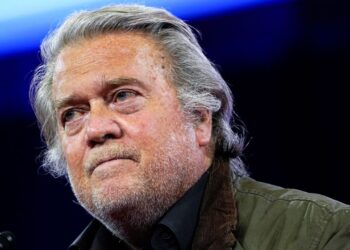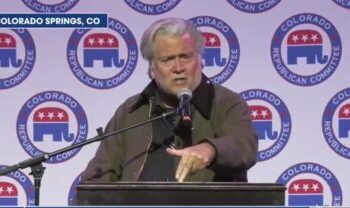The first hour of the WarRoom opened with a high-profile press conference featuring President Trump, Dr. Oz, Robert F. Kennedy Jr., Secretary Kennedy, and two mothers of children with autism, addressing the rising rates of neurodevelopmental disorders and highlighting new initiatives in autism research and treatment. President Trump emphasized the urgent need for transparency and action, particularly regarding prenatal exposure to acetaminophen (Tylenol) and its potential link to autism and ADHD. He underscored recent studies—including the Boston Birth Cohort and research from Yale, Columbia, and Harvard—showing associations between prenatal acetaminophen use and neurodevelopmental disorders, framing the findings as a call to change medical guidance for pregnant women. He repeatedly instructed that Tylenol should be avoided during pregnancy and in early childhood unless absolutely necessary.
The conference highlighted a broad, multi-agency approach led by the FDA, NIH, and CMS to study autism’s root causes, combining genetics, environmental factors, and prenatal exposures under a framework termed "exposonics.” President Trump praised the accelerated response, bypassing bureaucratic delays, to ensure that families could access actionable information quickly. Dr. Oz and Secretary Kennedy emphasized labeling changes for medications and therapies, including a promising new treatment involving folate receptor pathways that could help hundreds of thousands of children with autism, while ensuring access through Medicaid, CHIP, and private insurance.
Two mothers shared personal stories reflecting the spectrum of autism, from profound non-verbal cases to high-functioning children, emphasizing the isolation, daily challenges, and desperation for meaningful interventions. Their testimonials framed the administration’s initiative as not just scientific but deeply human, addressing the emotional toll on families.
Trump also criticized existing medical protocols, urging spaced-out vaccinations and caution against routine Tylenol use post-vaccination, while reiterating support for vaccines broadly. He repeatedly called for common-sense solutions, challenging both medical orthodoxy and pharmaceutical influence, positioning the administration’s autism efforts as a signature achievement comparable to major economic and public health initiatives.
Steve Bannon later commented, praising the president for boldly confronting "Big Pharma” and highlighting the human stories behind the policy decisions. He framed the effort as historic, a direct challenge to entrenched bureaucratic and corporate interests, describing the press conference as both emotionally powerful and unprecedented in its scope.
Overall, the hour combined scientific discussion, personal narratives, and policy announcements, emphasizing urgent action, parental empowerment, and systemic reform in autism research and treatment.
President Trump And Secretary Kennedy Announce Historic Steps To Confront The Autism Crisis
Moms Of Autistic Children Give Their Personal Accounts Of Dealing With Autism
President Trump On His Historic Announcement To Combat The Autism Crisis
The hour focused on President Trump’s announcement of a historic, all-agency effort through HHS to study and combat autism, including the role of toxic exposures and pharmaceuticals. Trump emphasized that past NIH research on genetic causes of autism ignored environmental factors, likening it to studying lung cancer genetics without considering smoking. The administration pledged evidence-based research, transparency, and public updates, with immediate action on potential risks of acetaminophen (Tylenol) during pregnancy. A nationwide campaign will inform families, and safety label changes are planned. Trump also addressed vaccine practices, encouraging spaced-out vaccinations and caution around vaccines containing mercury and aluminum, framing this as common-sense protection for children.
Commentators, including Steve Bannon, Tony Lyons, Mary Holland, Toby Rogers, and Dr. Brian Hooker, praised Trump’s personal commitment, describing him as "staking his presidency” on solving the autism epidemic. They highlighted the administration’s willingness to challenge entrenched scientific and corporate interests, break decades of "silence” around autism, and empower independent research. The panel noted that Trump’s approach marked a departure from past administrations, emphasizing practical steps for parents, including informed consent and minimizing chemical exposures.
The discussion also highlighted the broader strategy of the Maha movement, which mobilizes thousands of influencers to support transparency and advocacy. Upcoming events, including the Maha Institute Symposium, were promoted as a continuation of Trump’s initiative, focusing on rigorous science, parental guidance, and collaboration with independent researchers. Participants noted the historic significance of this approach and its potential to accelerate research on autism, neurodevelopmental disorders, and related chronic conditions.
Closing remarks emphasized resources for families, including Children’s Health Defense and Maha Action, encouraging parents to engage with the science and advocacy community. Panelists praised Trump’s boldness in confronting the pharmaceutical industry, prioritizing children’s health, and providing a pathway for informed parental decisions regarding vaccines and medications like Tylenol. Overall, the hour framed the announcement as unprecedented in scope, personal in motivation, and potentially transformative for autism research and public health policy.

![Bannon’s WarRoom, Show Clip Roundup 11/7/2024 [AM]](https://warroom.org/wp-content/uploads/2024/11/WarRoom-Logo-350x234.jpg)


